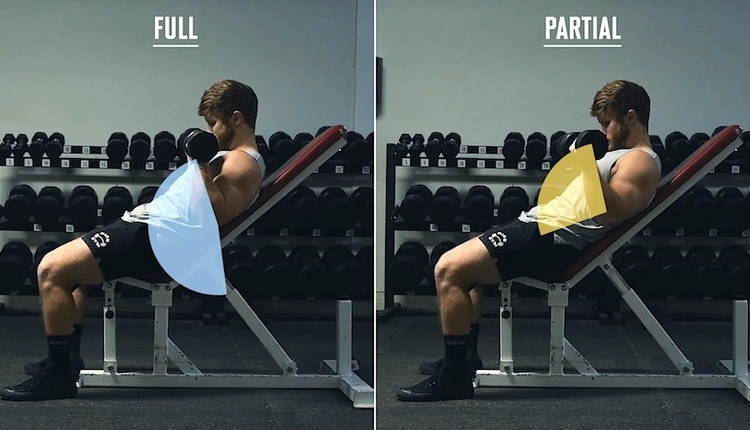
This article first appeared in the Fall 2023 issue of Personal Fitness Professional.
You may think becoming a physical therapist or an exercise physiologist are the only options. As important as these roles are, new medical fitness roles and opportunities are being formed for fitness professionals.
What Is Medical Fitness?
Medical fitness is a healthcare model that promotes “connecting health care with evidence-based physical activity resources for people everywhere,” according to American College of Sports Medicine. Medical fitness seeks to integrate aspects of wellness, such as exercise, nutrition and health coaching, into accessible healthcare for everyone.
Medical Fitness began to take shape when the Medical Fitness Association (MFA) was formed in 1991. The MFA “establishes protocols and standards, providing educational opportunities, communicating with public and governmental bodies...” to assist approved medical fitness centers serve their communities.
The Scope of the Medical Fitness Professional
Scope of practice is paramount when it comes to the fitness professional. One may wonder what a certified medical fitness professional’s role is when there are already physical therapists and exercise physiologists. The scope of practice may vary depending on which certification and previous education one has, but in general, it is:
● Exercise programming and supervision
● Behavior modification and goal-setting
The scope of a certified medical fitness professional does not include the following:
● Diagnosis and treatment
● Providing medical or physical therapy advice
● Providing dietary advice beyond general nutritional guidelines
Why Medical Fitness Is Needed
The statistics on physical inactivity and chronic disease are staggering. Unfortunately, the current medical system doesn’t have the resources to combat this. However, the fitness industry is capable of helping if it can join forces. Collaboration and integration with the medical system and fitness industry are imperative due to fatal consequences and excessive costs. The statistics below illustrate the need for change by integrating fitness professionals in the medical setting.
● According to the CDC, Physical inactivity also costs the nation $117 billion a year for related health care
● Former Medical Fitness Association President and CEO Robert D. Boone, FACHE, FMFA reports that the high-risk segment represents 3% to 5% of the population but accounts for as much as 49% of all healthcare costs
Difference Between a Medical Fitness Center and a Commercial Fitness Center?
According to Medical Fitness Association, Brad A. Roy, Ph.D., there are several distinctions between medical and commercial fitness centers. Medical fitness centers:
● Emphasize lifestyle modification over just working out
● Offer medical oversight, supervision, and guidance
● Have a close alliance with a hospital and physicians
● Include a high level of staff education, competency and certifications
● Bridge the gap between medical care and fitness services
The bullet points demonstrate greater involvement of the mission and staff with clients and patients compared to a typical commercial gym. A tremendous amount of “expert resources, quality standards and clinical experience” goes into creating a medical fitness facility with the overall goal of profoundly impacting the community, according to Holm and Byron’s Design and Operation of a Medical Fitness Center: The Clinician's Perspective.
Certifications and Education for Medical Fitness
Where do you turn next to equip yourself? Several reputable organizations in the fitness industry have created certifications. Furthermore, some graduate degrees include a curriculum that aligns with medical fitness.
Why are these certifications necessary? If you’re considering medical fitness, there are two essential reasons to pursue a specialized certification.
First, fitness professionals with a medical fitness certification will be viewed as a trusted referral resource by health care providers. Fitness professionals must take the initiative to meet the standards and expectations of healthcare workers, earning their trust as part of the patient care team. As shown below, the certifications required are not generic online certifications available to anyone. They have several prerequisites, such as:
● Minimum B.S./B.A. in kinesiology, or related field
● Proof of work experience designing and implementing exercise programs
● Additional NCAA-accredited fitness certification
The second reason you should pursue certification is to learn about common metabolic diseases in order to work safely and effectively with clients. As fitness professionals, some of us may have graduated from school some time ago and may not need to apply this knowledge on a daily basis in our current job roles.
Below are three certifications from reputable and trustworthy organizations. Each certification focuses on the education of basic pathophysiologies, special population exercise programming, assessment, safety and more. Each certification is slightly different, with distinct prerequisites. A thorough review of each one is necessary to determine the best fit for your needs.
● ACE Certified Medical Exercise Specialist
● ACSM Exercise is Medicine Credential®
● NSCA Certified Special Population Specialist (CSPS)
For those interested in pursuing a Master of Science degree, there are excellent programs available that can effectively prepare you to excel in the medical fitness industry. These programs have courses such as “Exercise in Chronic Disease Management,” “Public Health and Physical Activity,” “Diabetes, Obesity and Eating Disorders” and more. Research “kinesiology or wellness master’s degree programs” to learn more.
Job Opportunities Abound
Job opportunities can come from new clients referred by healthcare professionals to your existing business. As healthcare and fitness professionals working together continues to normalize, referrals will come organically.
There are also possibilities for entirely new jobs as a medical fitness specialist or in closely related roles that reinforce the integration of fitness and medicine. They range from:
● Wellness coordinators, lifestyle educators and specialized personal trainers in hospital settings
● Injury prevention and physician-referred post-rehab coaches.
● Group exercise instructors for special populations
The concept of integrating fitness into the medical model offers exciting prospects for fitness professionals. Medical fitness, as a healthcare model, aims to connect evidence-based physical activity with accessible healthcare for individuals of all abilities. As the statistics on physical inactivity, chronic diseases and healthcare costs reveal, the need for collaboration and integration between the medical system and the fitness industry becomes crucial.
Certified medical fitness professionals play a vital role in bridging the gap between healthcare providers and fitness services. Pursuing specialized certifications not only earns trust as a referral resource for healthcare professionals but also equips individuals with the essential knowledge to work safely and effectively with clients.
Brandon Hyatt, MS, CSCS, NFPT-CPT, NASM-CES, BRM, PPSC is an experienced leader, educator, and personal trainer with over 7 years of success in building high-performing fitness teams, facilities and clients. He aspires to become a kinesiology professor while continuing to grow as a professional fitness writer and inspiring speaker, sharing his expertise and passion. He has a master's degree in kinesiology from Point Loma Nazarene University. His mission is to impact countless people by empowering and leading them in their fitness journey.





















